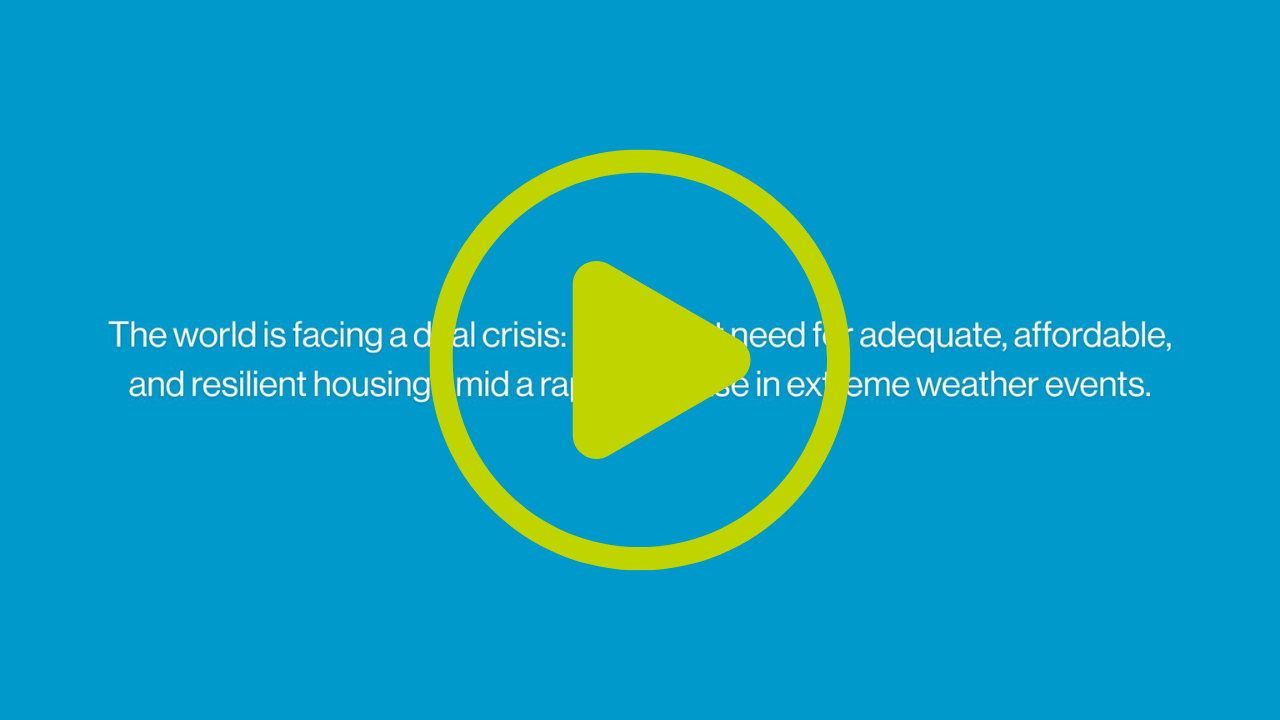New Habitat for Humanity report reveals countries most vulnerable to climate change aren’t prioritised in policy making
In BELEM, BRAZIL (November 11, 2025) — Habitat for Humanity International examined 188 countries’ Nationally Determined Contribution, or NDC, which outlines each nations’ public pledge to reduce greenhouse gas emissions and adapt to climate impacts, including the specific targets and actions they will take to meet the goals of the Paris Agreement.
Overwhelmingly, these NDCs include minimal or no reference to housing despite the built environment contributing significantly to carbon emissions.
The new report, Climate Action through Housing and Informal Settlements, released today by Habitat, finds in addition to the lack of commitment to housing, only 11 NDCs reviewed mention informal settlements or slums as a national issue, despite these areas being home to more than 1.1 billion people.
Misalignment between commitments and financing is also evident: Countries with strong NDC commitments to housing, such as the Bahamas and Benin, received negligible support through climate-related development finance, while some major recipients of climate finance show weak housing commitments. Costa Rica is a notable exception, aligning both high commitments and high levels of climate-related development finance.
Across all regions, financing for informal settlements and slum upgrading remains extremely limited, with only 7% of climate-related development finance directed toward incremental forms of housing. The report’s findings reveal a significant gap: communities most exposed to climate risks, particularly those living in informal settlements, remain underprioritized in both climate policy commitments and climate-related development finance.
“The findings in this report are alarming but unfortunately not surprising,” said Patrick Canagasingham, chief operating officer at Habitat for Humanity International. “Time and time again, we see that those living in informal settlements who are most vulnerable to the effects of climate change are the least supported when it comes to climate-related policy commitments and climate-related development finance. Habitat for Humanity calls on governments to integrate housing into their NDCs to help ensure climate resilience and security for vulnerable communities around the world.”
Key Recommendations for Policymakers:
Without systematically integrating adequate and affordable housing into climate strategies, global climate action will remain incomplete and inequitable.
The report highlights several key recommendations, including:
• Governments must integrate housing and informal settlement transformation into NDCs, adaptation plans and disaster risk reduction frameworks, establishing measurable targets and prioritizing locally led interventions.
• Donors and multilaterals should treat housing as a strategic, high-impact investment to achieve climate resilience, scaling proven approaches, improving visibility of development finance toward housing, and aligning support with national climate ambitions.
• Civil society organizations need to play a critical role in monitoring commitments, advocating for inclusive and resilient solutions through housing, and amplifying community-led initiatives that strengthen housing, livelihoods and climate resilience.
Encouragingly in the report, of the 20 countries that submitted updated NDCs by mid-2025, 16 increased housing-related references, with some adding new commitments on informal settlements and social housing.
Chris Govers (Head of International Projects at Habitat Australia) and Tevita Senico (GEDSI & Climate Resilient Coordinator at Habitat Fiji) shared a powerful message on the overlooked intersection between climate change and adequate housing in the Pacific content. You can watch the full video by clicking the image below.
For more information on Habitat for Humanity’s report, Climate Action through Housing and Informal Settlements, or COP30, please visit www.habitat.org/Habitat-COP30.



